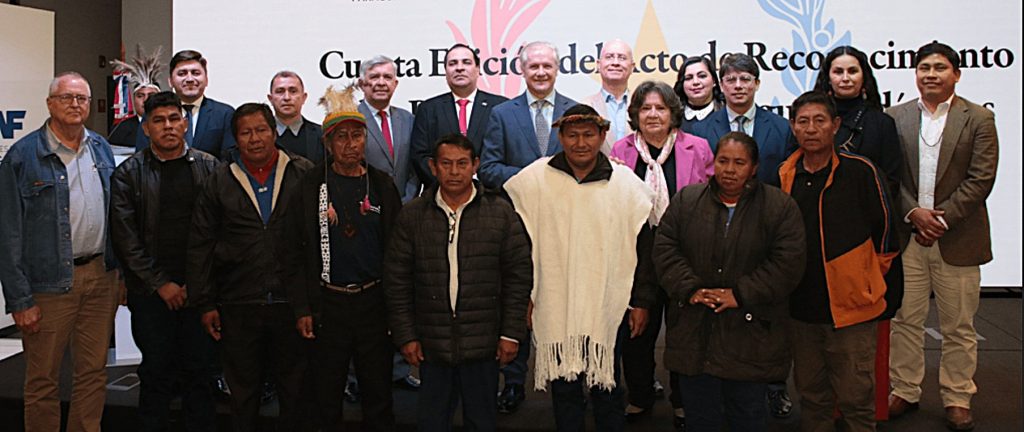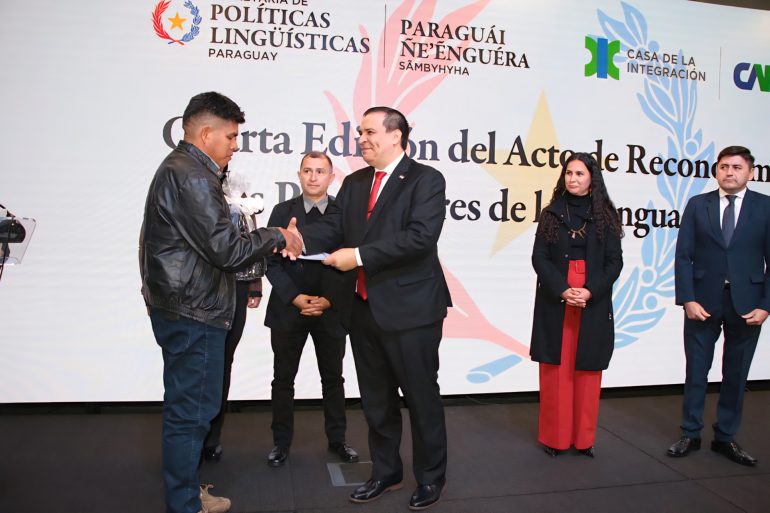In a landmark celebration, Paraguay’s Secretariat of Language Policies (SPL) honoured twelve individuals and several institutions for their tireless efforts in preserving and promoting the country’s Indigenous languages. The ceremony held in Asunción, formed part of the United Nations’ International Decade of Indigenous Languages (2022–2032), highlighting the global urgency of safeguarding linguistic diversity.
SPL role to support indigenous languages
In Paraguay, the Secretariat of Language Policies (SPL), with partners like the Development Bank (CAF), is focusing on intergenerational language transmission. The SPL also aim to develop educational materials, and encouraging public use of native tongues. Studies show that learning in one’s mother tongue enhances self-esteem, strengthens cultural identity, and improves academic performance.
SPL’s Minister Javier Viveros emphasised that in 2025 alone, the Secretariat has supported sixteen Indigenous languages through documentation, revitalisation strategies, and outreach programmes.
He highlighted that the SPL’s efforts demonstrate strong support for Indigenous languages and compliance with the national Language Law. María del Mar Leguizamón, representing the CAF development bank, noted that cultural and linguistic diversity is a key pillar of sustainable development throughout Latin America.
Recognitions
Among the celebrated individuals were Ignacio Vargas (Paĩ Tavyterã), Eocadi Alejandro Chiqueno (Ayoreo), and Aníbal López Ramírez (Enxet Sur). Also honoured were Manuela Villalba Martínez (Ava Guaraní), and Aurelia Dionisio Leguizamón (Manjui/Lumnanas).
Recognised organisations included the National Emergency Secretariat and the Paraguayan Indigenous Institute. A video tribute at the event highlighted the vital role of Indigenous women in language preservation.

Why preservation matters
The recognition comes at a critical time. Of the world’s approximately 7,000 languages, around 2,800 are Indigenous. The United Nations warns that over half of these could disappear by 2100 without decisive preservation efforts. Factors driving this decline include forced displacement, economic migration, discrimination, and societal pressure to adopt dominant languages. Indigenous languages are more than tools for communication: they carry unique histories, knowledge systems, traditions, and perspectives.
Their survival is essential for social inclusion, bilingual education, and the protection of human rights. The revitalisation of Māori in New Zealand and Hawaiian in the United States demonstrate that languages once at risk can thrive when taught in schools and embraced in public life.
Minister Viveros concluded by emphasising that the survival and flourishing of Indigenous languages rely on the active participation and commitment of the entire society. He stressed that these languages are not only a means of communication but also vital carriers of Paraguay’s history, cultural identity, and rich heritage.
Protecting and promoting indigenous languages ensures that future generations can maintain a strong connection to their roots. Protecting them also helps speakers to understand their ancestral knowledge, and continue the traditions that shape the nation’s diversity.
Read more: New Survey Highlights The Most Common Languages Spoken In Paraguay.


